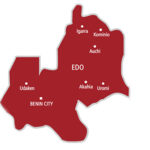
Drip irrigation is a system whereby you give water or fertiliser directly to the root zone of plants, eliminating runoff, evaporation, and drift. It is a technique in which water flows through a filter into special drip pipes, with emitters located at different spacing.
Mr. Adebowole Onafowora, an agricultural entrepreneur, explained that drip irrigation increases oxygen level at the root zone by more than 100 times, adding that although oxygen is not a major nutrient of plants, it aids them in absorbing nutrients and water.
Setting up a drip irrigation system for one’s farm involves connecting pipes namely drip lines or drip taps and then water is released through the emitters, releasing about 1.5 litres to 20 litres of water per day depending on the water requirement of the crop.
The different types of emitters for irrigation include; micro emitters, porous emitters which are inbuilt from the factory, and free flow emitters also inbuilt from factory, or improvised emitters from used water bottles and other suitable materials.
Onafowora said a hectare of land requires N100,000 to N150,000 to do it yourself and with a little extra if you are hiring a professional.
On types of drips to use, he explained that the crop to be grown is the first thing to consider when going into drip irrigation, adding that drip lines that have stronger pipes are those that can last for up to three years or more.
He listed types of drip lines to include; the arrow head drip line which is best for root crops or crops that are heavy feeders like tomato, cucumber and pepper, adding that it has been designed to go into the root zone.
Then there are surface drip lines suitable for crops like watermelon and vegetables, drip tapes used majorly for irrigation only because they are not suitable for fertiliser (fertigation).
The mist spraying drip which is an overhead drip line spraying water from the top is mostly used for foliar irrigation/fertigation of vegetables and leafy crops, he added.
He warned that the emitters can get clogged, especially when use for fertigation and that bush burning burns drip lines because they are made of plastic.
Onafowora advised farmers to always seek expert counsel on the best emitters to use for the crop he/she intends to grow.
He also advised that drip tapes should not be used for more than one harvest season, although they may last for up to six months with good management when carrying out farming activities on the farm.
Speaking about the limitations, he warned that the emitters can get clogged especially when used for fertigation.
Similarly, if there is bush burning, Mr Onafowora said the drip lines may get burnt because the materials are made of plastic, as such, maintenance and close supervision is needed at all times.
He said the best way to identify blocked emitters is by scouting; by having someone go through the farm to check and remove the particles that may have caused the blockage.



